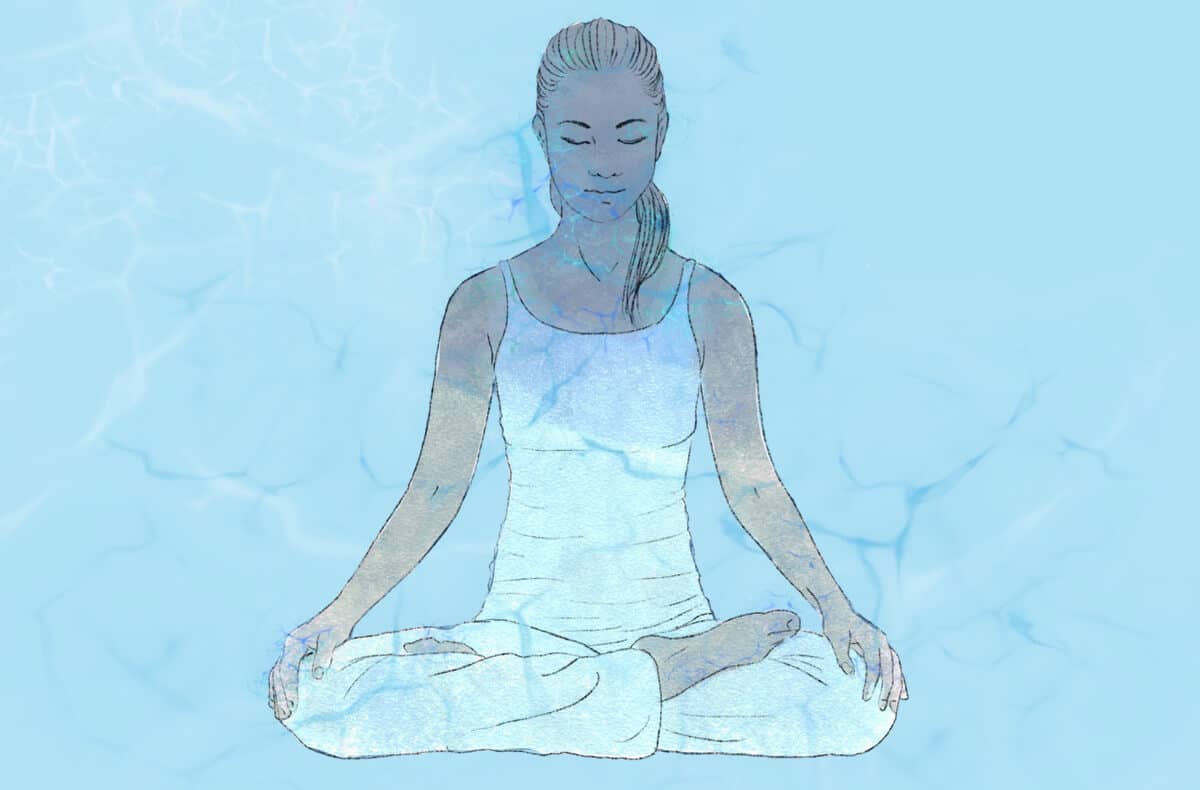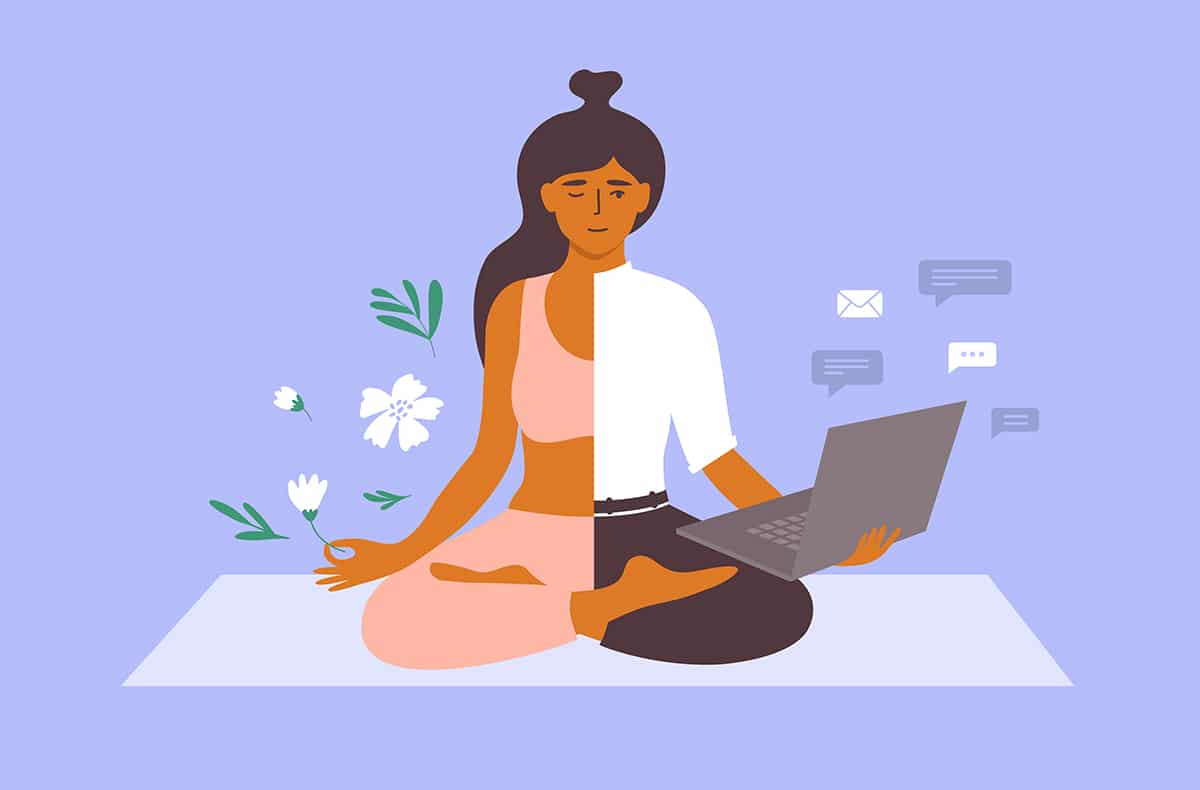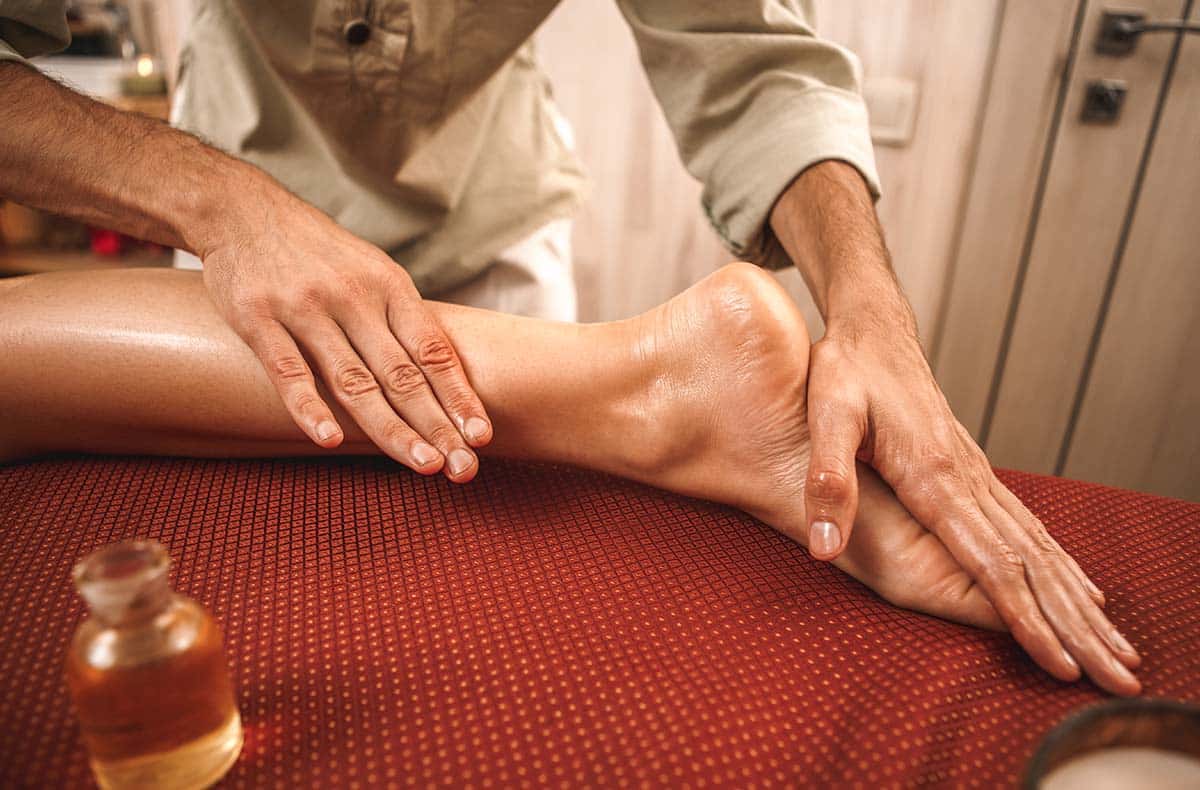
These days, there’s no shortage of reasons to run through the hypothetical scenario of how you’d fare if stranded on a desert island or forced to become a post-apocalyptic homesteader. Regardless of what motivates such thought experiments, there are some hard truths about whether we could survive in the wilderness we all must acknowledge. While our minds may convince us of our cunning ability to build shelters or tame fire, our bodies have demands not even the sharpest mental athletes can outsmart: We can make it for one to two months without food, but only three days without water. No matter who you are or where you come from, a shortage of water will affect you just the same: and fast.
Without water, we cannot survive. Water that’s contaminated or scooped out of the ocean obviously won’t cut it—hence the urgency of securing clean water sources for the world’s population. Most of you likely have ready access to clean, potable water. You turn on the faucet, fill your cup a few times a day, and think you’re crushing your hydration goals. Yet surviving on this water isn’t the same as thriving from it—at least according to Ayurveda.
Fire is King: Ayurveda and Digestion
Ayurveda, the ancient medical science based in India, is known for a personalized approach to diet and lifestyle that prioritizes high-quality and consistent digestion for the long-term health of our body, mind, and spirit. While we often think about how our foods affect our digestion, what we drink—including plain water—goes through the same digestive process, and thus requires our attention to reap the most health benefits from it. In fact, a few simple adjustments to your daily drinking water may bring relief from a host of imbalances—from indigestion, brain fog and insomnia, to depression, menstrual irregularities, and joint pain.
Before exploring water’s role in digestion, let’s review why good digestion is Ayurveda’s key indicator for health and well-being. Ayurveda operates under the idea that we are microcosms of the macrocosm—in other words, external nature’s five elements (space, air, fire, water, and earth) are also present inside of us, responsible for all of the functions of our body and mind. Fire manifests predominantly in our digestive fire, or agni. In Western medicine, agni correlates roughly to digestive enzymes—that which breaks down and helps direct the absorption of our food once it hits our stomach.
Having evolved so our daily rhythms of activity and rest follow the cycles of nature, our agni’s rise and fall naturally matches that of the sun (the ultimate fire) in the sky. Our bodies’ internal fires are stoked during our waking hours to keep us energized for whatever we’re doing. We get hungry, we eat, then once we use up that fuel (and eliminate the waste), we get hungry again—a dance that’s entirely driven by the little fire in the center of our gut.
This is what we’re designed to do, yet our modern world has given our agni a run for its money. As we’ve lost touch with nature’s rhythms through our industrialized, productivity-obsessed and tech-driven world, the rhythms of hunger that once defined our existence have been remixed into something like a piece of experimental music, full of random, indefinite bouts of silence juxtaposed with the sound of jackhammers, phone pings, and ambulance sirens. We have access to food all day and night, and to all types of food that may not be native to our region or season, and that our bodies perhaps might not recognize as “food” at all. (I’m looking at you, Beyond Meat and Cool Ranch Doritos.)
In addition to what we eat being poor quality, how we eat is also compromised. Many of us grew up eating while multitasking, and may feel it’s necessary if not expected to eat while working. There’s also the uninvited dinner companion of stress, which can steal from the potency of agni in our gut. That’s because, per Ayurveda, agni is responsible for digesting everything we take in through our senses—whether food, conversation, news headlines, or our own internal monologue. All these distractions can so overwhelm our agni that it forgets how, when, and whether to fire up. As a result, the food we eat may not get fully “cooked” inside our bodies, creating a build-up of metabolic waste called āma.
We all have a little bit of āma all the time; you’ve likely experienced it the day after a holiday meal or party, where you grazed on chips and cheese before enjoying a heavy meal washed down with glasses of wine and topped off with a rich dessert. That gross, hung-over feeling is āma. In acute situations, the body is strong and smart enough to clear it out on its own; the next day, you might have the natural instinct to eat a little less or take a walk, and by day’s end, you feel fine. But when poor food and eating choices become a habit over days, weeks, years, or decades, āma can build up and create a host of health conditions that, while might not have any obvious connection to your digestion, all stem from your poor little agni being worn out and extinguished.
Water Meets Fire: Why You Should Cook Your Water
Returning agni to its original capacity and rhythm—and maintaining it once it gets there—is at the heart of everything we do in Ayurveda. So if you meet with an Ayurvedic practitioner, you can expect a lot of questions about your poop. Why? To state it plainly, what goes in must come out, so the quality of our waste (including sweat and urine) will reflect how well our bodies are “cooking” our food, or the state of agni.
It might be easy to see how a diet of Oreos, coffee, and take-out would contribute to a whacked-out agni and āma factory. But even “healthy” foods can create the conditions for āma to thrive when consumed without remembering the importance of fire in good quality digestion. Case in point: the ubiquitous kale salad, on which I “survived” for a good ten years of my life. I’d hunker down and chew on those dinosaur greens for what seemed like hours, thinking I was supporting my health—thriving—with this food choice. Reader, I was not. I was writhing in abdominal cramping all day, every day, couldn’t sleep, and noticed a gradual decline in my mental health. Kale, like all foods, is neither good nor bad (unlike our Western tendency to make pariahs out of gluten, dairy, and fat, Ayurveda doesn’t ascribe morality to food), but there are better and worse ways to eat it, depending on the eater—something I learned the hard way.
You see, our agni may be responsible for cooking our food, but we can give it a little help by actually cooking our food before it enters our GI tract. That’s right—I’m saying that warm, cooked foods are generally better for you than raw, cold foods. My kale salad wouldn’t have been so discomfort-making if those rough, fibrous leaves had been softened up with an oil and garlic sauté.
There’s a time and place for a slice of cucumber, bite of juicy watermelon, or even kale salad—namely, the summer, when our bodies can handle simple, watery fruits and vegetables. But for the most part, cooked foods are the way to go. That’s because when we feed our bodies foods similar in qualities to what’s already inside of us—namely pretty warm and moist—it doesn’t have to work as hard to turn it into usable nutrients. This is true even in ideal, stress-free circumstances; but it’s especially true if we’re digesting all the rough, never-ending bowls of kale salads that define our contemporary society. So if we can’t control the pandemic, and countless societal ills, and modern-day stressors, why not give agni a little break with some cooked food?
If cooking our food is so good for us, imagine what cooking your water would do. Our bodies are 80 percent water, which means being able to digest this vital “food”—remember 3 days is all you’ve got without it!—is going to benefit the large majority of our systems’ health. Cooking water might seem extra, especially if you already struggle with drinking enough water generally. But there are a few reasons why cooking your water and foods should become a priority in your diet:
- The warmth of cooked water makes it easier to digest and supportive to agni. Think about pouring cold water on a hot fire—what happens?
- Cooked water is lighter in quality, because some of the gasses evaporate during cooking. Less gas in your water means less gas inside you, meaning you might feel less full, bloated, or “sloshy” after drinking.
- Cooked water can help support the digestion and elimination of metabolic waste (āma) and daily, consistent bowel movements. Not only will the water’s heat spark the agni to get things moving overall; when you do eliminate, your body will get the signal that it’s all clear to take in more food—so you can get more steady nutrition throughout your day. Eating before the previous meal is digested is a recipe for āma, since you’ll have a melange of partially-digested and undigested food in your gut, and none of it usable by your body.
How to Cook Your Water
The process of cooking water might seem obvious, but there are a few particulars to keep in mind as you incorporate this into your daily routine. You’ll cook enough water for your day in the morning, so that you don’t have to repeat the process every time you need a refill.
- Upon waking, fill a large pot or Dutch oven (whatever you use for making soup; about 8 to 12 cups) with tap water.
- Put it on your largest burner, turned to medium-high.
- Set a timer for 15 minutes. The water should come to a full, rolling boil, which you want to keep it at for at least 5 minutes. The water should have “cooked” by the time the timer goes off, but if you have a really big pot or really small burner, it might take longer.
- While the water is cooking, go about your morning business. Brush your teeth, meditate, or do an Ayurvedic dinacharya of sense-care rituals and hygiene.
- Turn off the heat and let the water stand for a few minutes to cool down and release some more gas (via steam).
- Drink a cup of this cooked water before you consume anything else, within an hour of when you get up and before food. Since it will be hot, sip it rather than gulping it down, but don’t nurse it for hours.
- Drink the cooked water throughout the day; ideally you’ll still drink it warm, but room temperature is also okay (you just don’t want it to be cold, so no ice). If you’re not going to be home all day, take the water along in a thermos; it will keep it warm, which is an extra bonus.
- Make fresh water every day; if you have leftovers, use it to water your plants, wash your face, etc., but you should be able to consume the whole pot. After your first few days, you’ll get to know how much you drink and can adjust accordingly so there’s no extra.
A few other key tips for benefitting from cooked water:
- Do NOT cook your water straight from the tap if you have “hard water” with high mineral content. Cooking hard water will only further concentrate the minerals, so be sure to filter it first.
- For an extra boost of agni, squeeze fresh lemon or lime juice into your morning cup of cooked water. This will help clear āma and support elimination, but it’s not necessary, especially if you’re experiencing any kind of extra acid or digestive heat (acid reflux, inflammation, loose stools, ulcers).
- You can enhance the medicinal qualities of your cooked water with simple spices: Add a stick of cinnamon to relieve mucus, nausea, swelling, or blood sugar imbalances; a pinch of fennel seeds or cardamom for excess heat, inflammation, loose stools, or skin disorders; or a pinch of ground ginger for gas and bloating, menstrual pain and cramping, irregular appetite, constipation, and any kind of body pain. Toss in the spices while the water is cooking and let them steep in the water throughout the day. (It’s okay to consume the smaller spices whole, just not the cinnamon stick.)
If what we eat is as important as how we eat, the same is true for drinking. Here are general tips from Ayurveda about ideal water consumption:
- More isn’t better! Our stomachs can only hold so much, so drinking a ton of water (even cooked) will extinguish agni. It may be an old party trick to suppress appetite with water for weight loss, but an even better way to lose weight is to digest your food, which can’t happen when there’s no agni. You may want to refrain from water 30 minutes before or after your meal, and sip little bits during a meal ( most foods have a good amount of water in them already). This may be helpful in restoring an irregular or absent appetite, or if you feel tired and heavy after eating.
- You may need more water if you are very physically active or during the summer, since when we sweat more we need more water to replace what we’ve lost. Conversely, you may consume less water overall in the winter, since you’re not sweating as much.
- The recommended eight glasses a day doesn’t apply to everyone per Ayurveda. In addition to the conditions above that may require more or less water, we are all unique bodies with our own unique hydration needs; someone who naturally tends toward dryness will need to drink more overall, compared to people who have more moisture (looking at someone’s skin is generally a good way to tell—is it rough and flaky, or moist, dewy, even oily?). A good rule of thumb is to drink when you’re thirsty. Seems obvious, but think: when was the last time you felt thirst? How about hunger? We live in our body and yet so often have no clue about its needs or cries for attention. If nothing else, this practice might help you get in better touch with these important urges many of us have lost contact with.
While it’s hard to argue that taking a few extra minutes out of your day to cook your water isn’t worth your time, there are few perfect things about our lives, so it might not always be possible. In a pinch, boiling water in a tea kettle gets your water closer to cooked (there just isn’t as much release of gas, but it’s still hot), as will refraining from ice and just consuming room temperature water. At a restaurant, you can order hot water (with or without lemon) instead of a huge glass of ice water and feely fancy because of it.
I challenge you to try drinking cooked water just for one day—maybe when you have more time on your hands and won’t feel overwhelmed by a new routine. Notice what happens to your poop, your appetite, and how you feel after eating. I guarantee you won’t go back!


